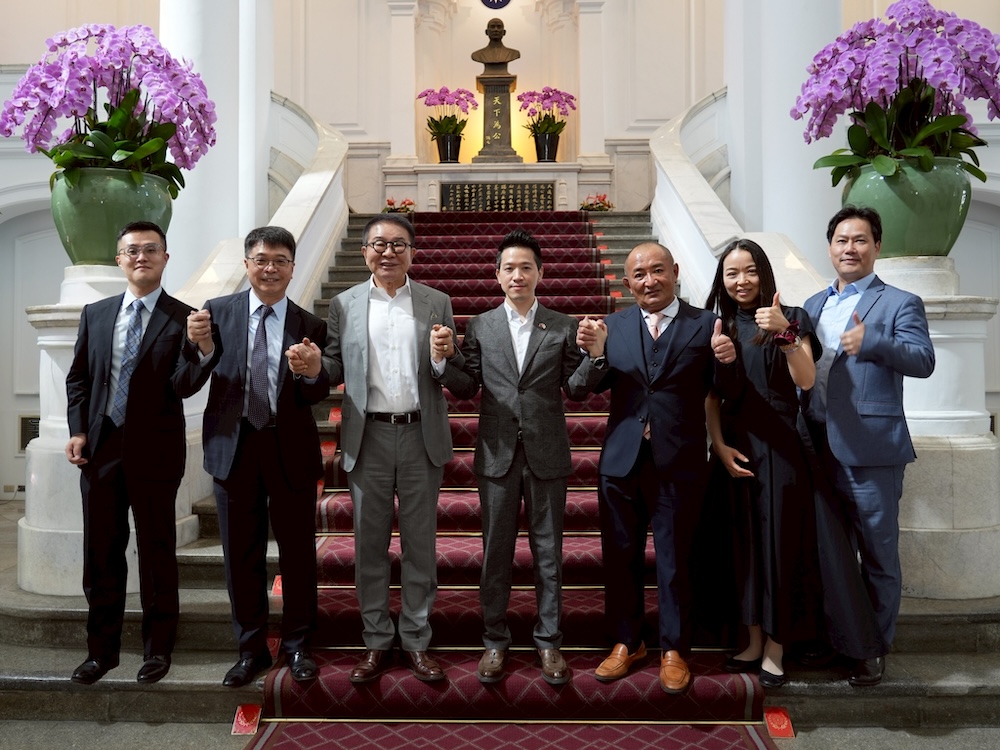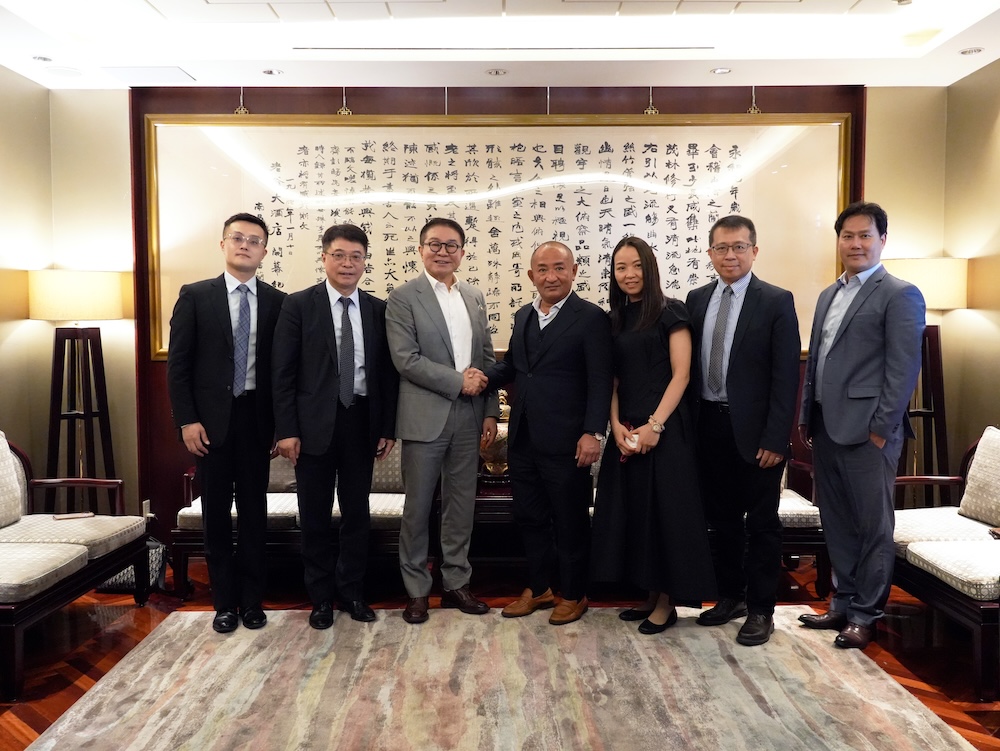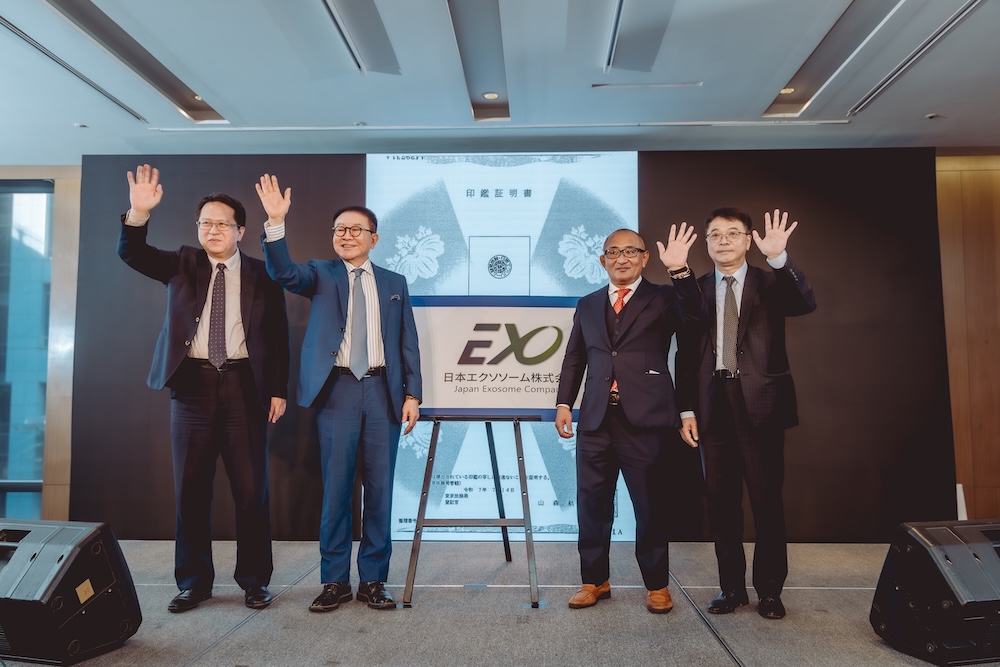2025/10/17
Editorial Column
Taiwanese Exosome Companies Partner with Japan’s Toyota Holdings to Expand Internationally, Targeting Global Regenerative Medicine Market

CNEWS Convergence News reporter Hu Zhaoxin / Taipei Report
Widely applied in multiple fields such as cancer treatment, regenerative medicine, and aesthetic skincare, exosomes have become the focus of the global biotech industry. The global market size reached USD 4.58 billion last year and is expected to grow rapidly at a compound annual growth rate of 18.3%. Taiwan Exosome Company (TEC) and Japan’s Toyota Holdings Corporation jointly established “Japan Exosome Co., Ltd.” in July, using exosomes and NK cell therapy as dual engines to build a new generation Asian biotech alliance. Combining Taiwan and Japan’s research, development, and manufacturing advantages, they aim to drive the development of the global healthcare market.
TEC Chairman Hong Qichang and Toyota Holdings President Hiroyuki Toyota visited the Presidential Office today (15th), met with Deputy Secretary-General Ho Chih-Wei, and subsequently visited Su Jiaquan, Chairman of the Taiwan-Japan Relations Association. Hong Qichang stated that this collaboration with the innovation-seeking Toyota Holdings in biotechnology and cell therapy R&D establishes a strong alliance. In particular, under the efforts of founder Chen Zhenxing in recent years, TEC has built a solid foundation. He looks forward to leveraging this Taiwan-Japan collaboration to combine R&D capabilities from both sides, achieving breakthroughs from basic cellular medicine to therapeutic applications in various directions.

Hiroyuki Toyota stated that medical care requires innovation and revolution. He is optimistic about the future of exosomes in the global market, noting that Taiwan possesses the strongest technology while Japan has the best quality. He looks forward to both parties joining forces to expand from Asia to the world, creating even greater breakthroughs through this collaboration. Japan Exosome Co., Ltd. is chaired by Chen Zhenxing and will bring in more partners while collaborating with local Japanese laboratories and cell preparation factories to provide clinical-grade cell products and health applications to medical institutions. The company will further expand into European, American, and Southeast Asian markets in the future.
TEC possesses a clinical-grade, non-gene-edited universal NK cell preparation platform. Currently, only six companies and institutions worldwide have this capability. TEC is not only the latest to obtain certification but also the first NK cell manufacturing plant in Taiwan to be certified by the Ministry of Health and Welfare. It has three major developmental advantages: “immune cell preparation, exosome R&D, and academia-industry-clinical validation.” Related research covers clinical fields such as cancer, autoimmune diseases, neurodegeneration, and anti-aging, demonstrating strong innovation capabilities in biomedical technology R&D.
Hong Qichang pointed out that 2025 will be a critical year for the structural transformation of the global biotech industry. Exosomes, immune cells, and regenerative medicine technologies are not only new battlefields for clinical applications but also hot zones for capital market deployment. Together with Taiwan’s promotion of the “Regenerative Medicine Dual Acts” and the “Healthy Taiwan” policy, TEC’s R&D team, with over 10 years of cell process development experience, will actively pursue innovation breakthroughs under a sound legal foundation, demonstrating competitiveness in the global exosome and regenerative medicine fields and benefiting more people in need.

TEC Chief Operating Officer and Chief Technology Officer Lin Jieliang stated that exosomes are like “couriers between cells,” capable of transmitting physiological messages and holding potential application value in immune regulation and neurological research. TEC is currently providing clinical trial-grade natural killer (NK) cells for research use, including an autologous NK cell Phase I colorectal cancer clinical trial at Linkou Chang Gung Memorial Hospital and an allogeneic NK cell Phase I/II trial for pancreatic and bile duct cancer at National Cheng Kung University Hospital in Tainan.
TEC stated that through accumulated experience, refined R&D, and domestic and international collaboration strategies, it will continue to advance its research and promote exosome application studies. It aims to drive innovation and improvement in future clinical care models. At the same time, TEC will promote product and technology safety enhancement, clinical standardization, talent cultivation, and cross-border cooperation, connecting Asian and Western markets. With the vision of becoming the “international driving core” of regenerative medicine, it seeks to lead the development of Taiwan’s exosome biotechnology industry.
Photo Source: CNEWS Convergence News Archive
